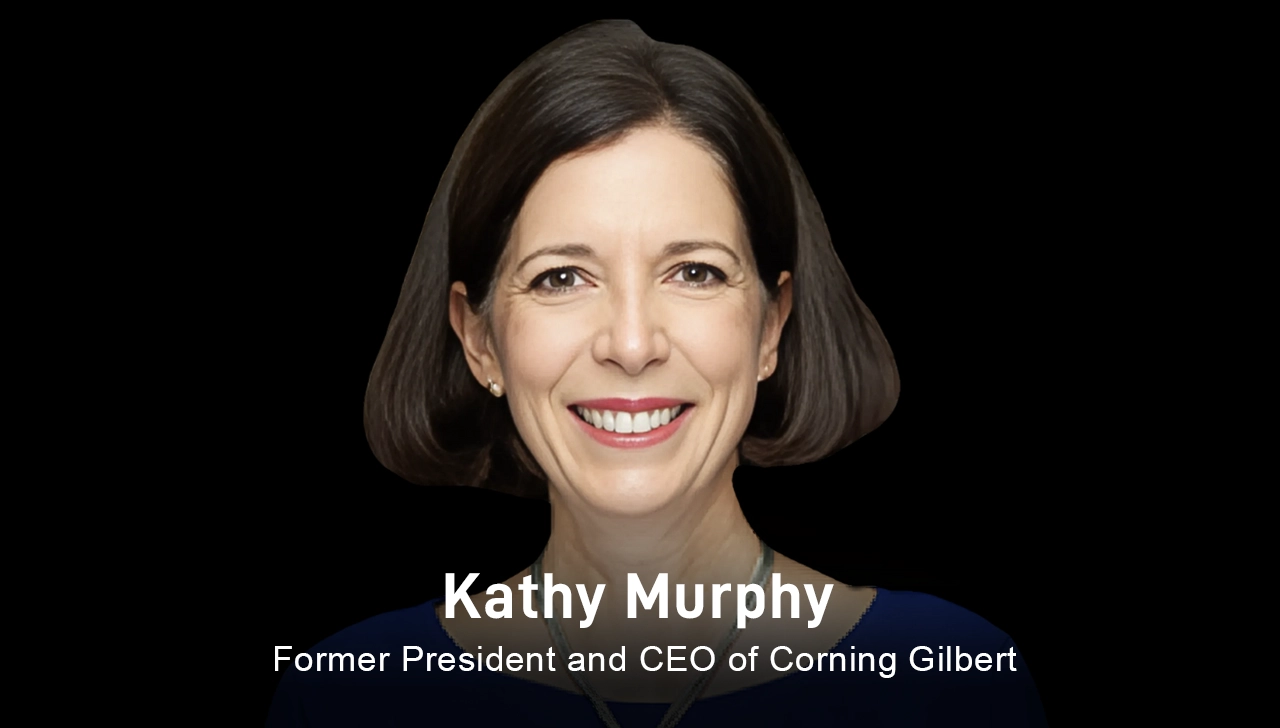ExCo Insights
Kathy Murphy’s Leadership Lessons | ExCo Insights
ExCo Insights
In this series, we explore some of the most important lessons and insights from our executive coaches and mentors.
Kathy Murphy, executive coach and mentor at The ExCo Group and former president and CEO of Corning Gilbert, shares her key leadership lessons, including the importance of challenging the status quo, having the courage to do the right thing, and how to improve communication.
Click here for more ExCo insights.
KEY LEADERSHIP LESSONS
The first one is do the right thing, do it the right way, and take a stand—don’t just make decisions to make other people happy. Many times over my career, there were moments when I realized that something hard needed to be done, and I needed to take a stand and get my voice heard. So I earned a reputation for being someone who would challenge the status quo, and who would press to get the right things done. As a result, I found myself it at one point being invited to a lot of meetings that didn’t have anything to do with my area of responsibility. But people invited me for the purpose of being the one who would speak up. It’s something that I coach my clients on all the time—that it’s important to do the right thing, do it the right way, and take a stand.
I learned a second lesson from the three times in my career that I was asked to take on assignments that were not on the career path that I had laid out for myself. They were in challenging areas of the company that needed significant change. All three times I said, no, I didn’t want to do it. But there was quite a bit of persuasion and arm-twisting that followed, and the leaders of the company, including the CEO on one occasion, made it clear that they needed me to do these jobs. I accepted the jobs, and in all three cases, they ended up being monumental life- and career-changing moves. I learned things that I never in my wildest dreams imagined that I was going learn, and those roles catapulted me into higher levels of leadership. So when my clients come to me with opportunities that they were not expecting, I tell them to think long and hard about them, because they could be a game-changer for them.
“Do the right thing, do it the right way, and take a stand—don’t just make decisions to make other people happy.”
A third lesson from a difficult boss I had early in my career. Everyone on the team was affected by his style. We had poor quality of work, poor morale, poor productivity, poor retention, and nothing was being done about it. I decided then that if I were ever put into a position of leading a project or a department, I was going to learn from his mistakes and not do what he did. I tried very hard to be the best leader that I could be.
And that approach extended to colleagues. If I saw them not living up to the expectations for good leadership, I considered it part of my responsibility to give them constructive feedback about things that I saw. When I became the head of a company, I understood that part of my job was to make sure that everyone who worked for me was a good leader for their teams.
WHEN I COACH CLIENTS, WE OFTEN TALK ABOUT…
All my clients are really smart, talented, and hardworking people. They don’t generally need help from me on how to do the functional parts of their jobs. One of the ways I can add significant value for them as a mentor is to be a neutral, trustworthy, objective sounding board for their ideas. They will share with me what they’re thinking, and I don’t give them answers. I listen, ask questions and allow them to discover the answers themselves. Frequently, they have an “aha moment.” That helps them enhance their plan, teaches them how to think through similar challenges in the future and models how they can be an effective sounding board for others. Most people don’t have somebody in their workplace that they can use as a sounding board because it requires vulnerability.
Another theme is improving communication with bosses, colleagues, teams, customers, suppliers, boards, and investors. Our clients are so busy, and they may think that they don’t have time to really work on relationships. But those relationships are critical for achieving business outcomes. There’s a Japanese word, Nemawashi, that literally means preparing the groundwork. If a client tells me about an important upcoming meeting where they have to convince people of a challenging idea, then I will tell them that they need to do some one-on-one groundwork before the meeting to get people to support the idea before the meeting itself. You can’t just rely on logic and facts to convince people in the meeting itself. So I will ask my client questions ahead of an important meeting: Who’s on board? Who are you worried about? Who are you not thinking of? It’s about persuading people to be supportive of good ideas.
